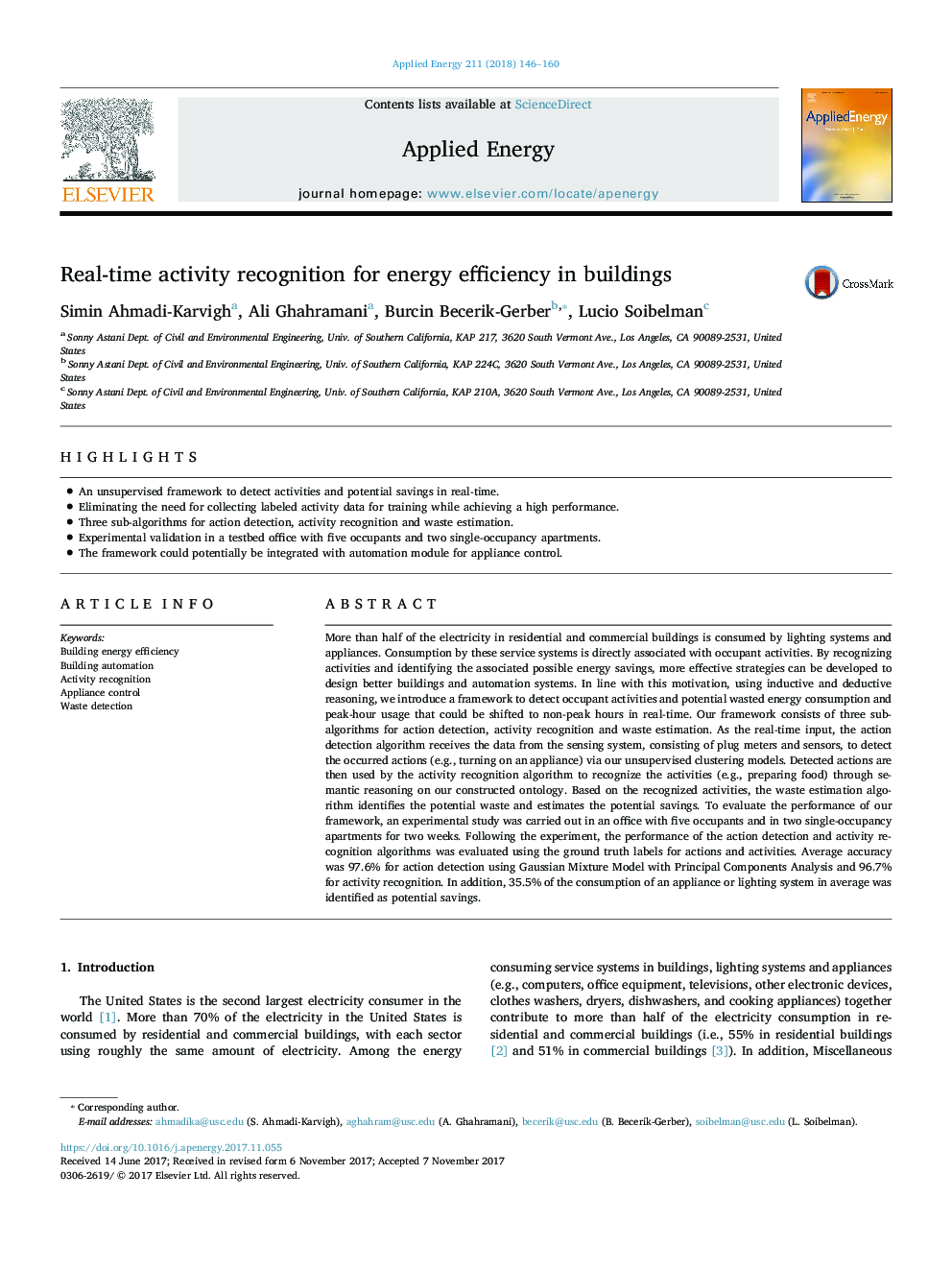| Article ID | Journal | Published Year | Pages | File Type |
|---|---|---|---|---|
| 6681129 | Applied Energy | 2018 | 15 Pages |
Abstract
More than half of the electricity in residential and commercial buildings is consumed by lighting systems and appliances. Consumption by these service systems is directly associated with occupant activities. By recognizing activities and identifying the associated possible energy savings, more effective strategies can be developed to design better buildings and automation systems. In line with this motivation, using inductive and deductive reasoning, we introduce a framework to detect occupant activities and potential wasted energy consumption and peak-hour usage that could be shifted to non-peak hours in real-time. Our framework consists of three sub-algorithms for action detection, activity recognition and waste estimation. As the real-time input, the action detection algorithm receives the data from the sensing system, consisting of plug meters and sensors, to detect the occurred actions (e.g., turning on an appliance) via our unsupervised clustering models. Detected actions are then used by the activity recognition algorithm to recognize the activities (e.g., preparing food) through semantic reasoning on our constructed ontology. Based on the recognized activities, the waste estimation algorithm identifies the potential waste and estimates the potential savings. To evaluate the performance of our framework, an experimental study was carried out in an office with five occupants and in two single-occupancy apartments for two weeks. Following the experiment, the performance of the action detection and activity recognition algorithms was evaluated using the ground truth labels for actions and activities. Average accuracy was 97.6% for action detection using Gaussian Mixture Model with Principal Components Analysis and 96.7% for activity recognition. In addition, 35.5% of the consumption of an appliance or lighting system in average was identified as potential savings.
Related Topics
Physical Sciences and Engineering
Energy
Energy Engineering and Power Technology
Authors
Simin Ahmadi-Karvigh, Ali Ghahramani, Burcin Becerik-Gerber, Lucio Soibelman,
